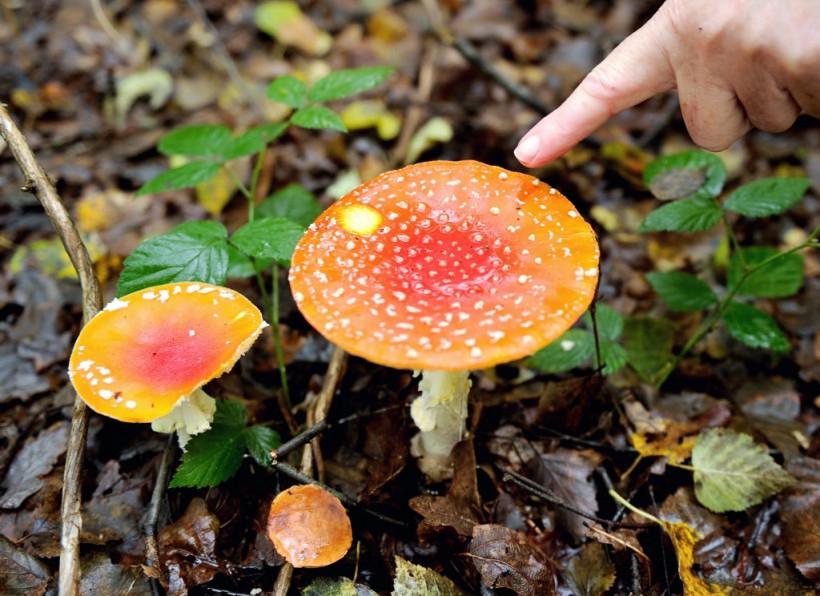Amateur mushroom pickers are being warned to be vigilant about foraging books on Amazon, which appear to have been written by artificial intelligence (AI) chatbots.
Recently, Amazon has become a market for books authored by AI that often pass for human-written works; travel guidebooks are one category especially vulnerable to this fraudulent material.
A series of AI chatbot-written wild mushroom foraging books has appeared on the e-commerce giant's marketplace. Books with titles like "The Supreme Mushrooms Books Field Guide of the South-West" and "Wild Mushroom Cookbook: From Forest to Gourmet Plate, A Complete Guide to Wild Mushroom Cookery" have sparked controversy.

A woman shows an "Amanite Tue Mouche" (fly agaric), a dangerous mushroom, on October 20, 2012, in the Clairmarais' wood.
AI-Written Guides are Risky
Four excerpts from these novels were evaluated by originality.ai, a US startup that specializes in finding AI-generated content, on behalf of The Guardian. The AI detection scale gave all four a score of 100 percent, suggesting a high degree of certainty that chatbots like ChatGPT were involved in their composition.
According to the evaluation, the books contain passages like "The sweet smell of freshly cooked mushrooms wafted through the air, bringing back fond memories of my mother" and "Foraging for wild mushrooms is a deeply rewarding experience that connects us with nature's abundance and the rich tapestry of flowers that the Earth provides."
These AI-generated foraging recommendations have raised severe concerns from specialists. Professor Myron Smith, a fungal expert at Carleton University in Canada, has called the materials "totally irresponsible." He stressed that differentiating edible from non-edible mushrooms is crucial and frequently needs experience.
🚨: PSA Alert!
— newyorkmyc (@newyorkmyc) August 27, 2023
🔗: link in bio@Amazon and other retail outlets have been inundated with AI foraging and identification books.
Please only buy books of known authors and foragers, it can literally mean life or death. pic.twitter.com/FSqQLDhh42
Read Also: Are Paper Cups Really Eco-Friendly? New Research Says No
Ashley Vanicek, Amazon's spokesman, said all publishers must follow the platform's content rules, regardless of how the material was created, per The Hustle. Books that are discovered to go against these rules are taken out. However, how Amazon intends to handle the proliferation of AI-written books on its platform still needs to be clarified.
Growing Problem of AI-Written Content
Although mushroom harvesting may be a specialized activity, AI-generated content on Amazon has huge wider ramifications. Similar instances of AI-generated material have been reported across a variety of industries, and there have even been instances of authorship impersonation, like with Jane Friedman, who uncovered several poor-quality works that were wrongly credited to her name.
TechTimes recently reported that newspaper company Gannett recently came under fire for publishing high school sports articles produced by an AI system that was slammed for their strange vocabulary, lack of sports knowledge, repetitions, and omitting vital information.
Experts point out that generative AI's drawbacks, such as the capacity to produce false or wrong information, present significant difficulties in a sector that places a premium on factual dependability and correctness.
The threat of inaccurate information and poor advice on various topics grows as AI-generated material permeates internet platforms. An article on Futurism recommends shoppers should be cautious, investigate, and support local bookshops.
Related Article: Artists Challenge AI Image-Generators in Lawsuit Over Unauthorized Use of Work










